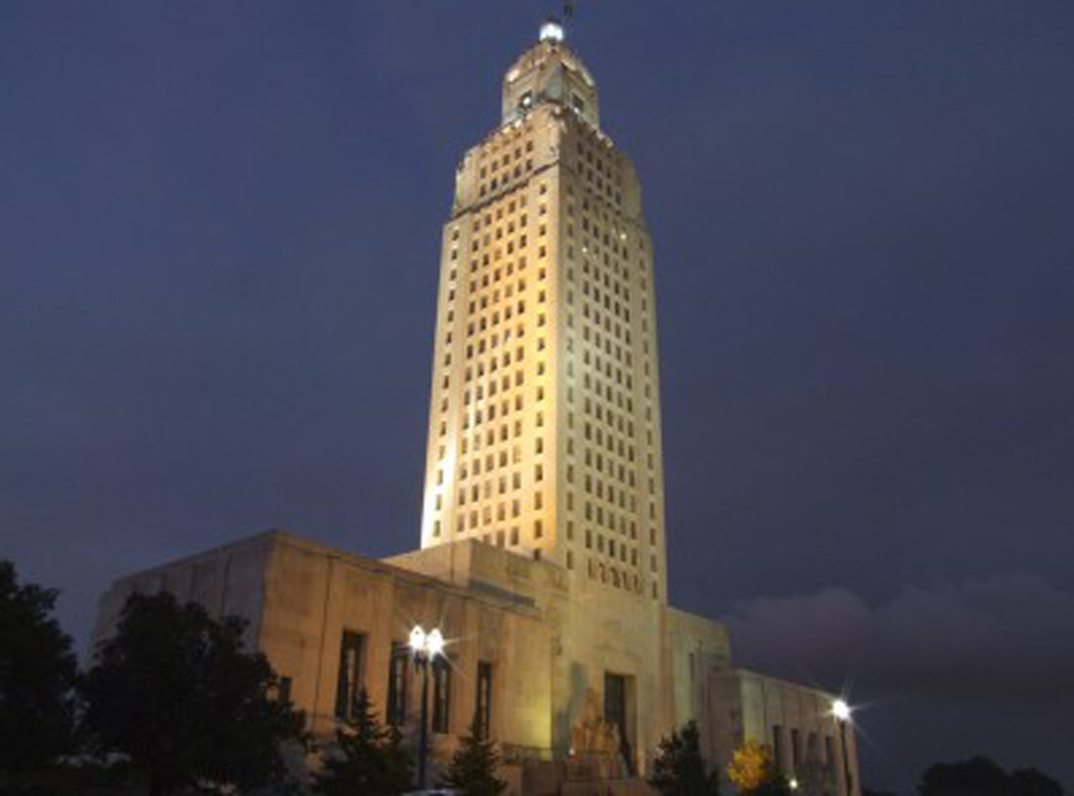A bill that could do away with the Louisiana High School Athletics Association is headed to the House Committee on Education Wednesday.
Rep. Gene Reynolds, District 10, says he does not believe the bill will pass, adding it will probably be killed before it ever leaves committee.
“What it says is if any schools public or private receives state funds they cannot belong to an athletic organization that splits its divisions,” he said. “He’s trying to do away with the LHSAA.”
House Bill 863, authored by Rep. Kirk Talbot, District 78, offers an alternative to the LHSAA, the Louisiana High School Sports Cooperative. It would allow participation by public, private, parochial, charter, laboratory and other secondary schools in sports such as football, baseball, basketball, volleyball, softball and track.
It would have to have 60 schools willing to participate and come up with a $15,000 one-time membership fee to start up, according to an email sent to several schools.
The LHSAA governs about 350 member schools.
Open Burn
Reynolds has filed House Bill 11 to stop the open burn of any munitions in the state of Louisiana. He says lobbyists are already in Baton Rouge attempting to stop the passage of the bill, but Reynolds says the open burning of toxic munitions has to stop.
“Today (Monday), I have called in the cavalry, and we’re going to be down here in full force,” he said. “We’re going to be able to refute anything they say. There is a compromise, and I’ve given (Clean Harbors in Colfax) a chance to switch over to something clean, but there’s no word on that. They can compromise and work with us or I’m calling in the cavalry. And they’re not going to like it. We don’t want open burn in Louisiana. Why should we be the dumping ground for the entire country?”
Currently, it is in the Natural Resources Committee, he says, and it is set to be heard in committee April 20.
Special Session
Reynolds says he’s been reluctant to talk about the ending of the special session held just a week before the 2016 regular session began because they don’t know exactly what the cuts are going to be or what revenue will be generated.
“They’re not sure how much revenue short we’re going to be,” he said. “Right now, it’s at $70 million. It could be more or it could be less, and you can’t really make the cuts on that $70 million until you know if it’s going to be more or less.”
He explained that when House Bill 61 was cleaned up, it got back to the House within the last six minutes of the special session, and there were questions regarding which entities were exempted and which were not.
“There’s several different things that play in there, and we know it’s going to be a little less than $70 million or a little more than $70 million, but we’re not sure how much,” he said. “When we get that figure, then we can say how many cuts will be necessary to finish out this year.”



